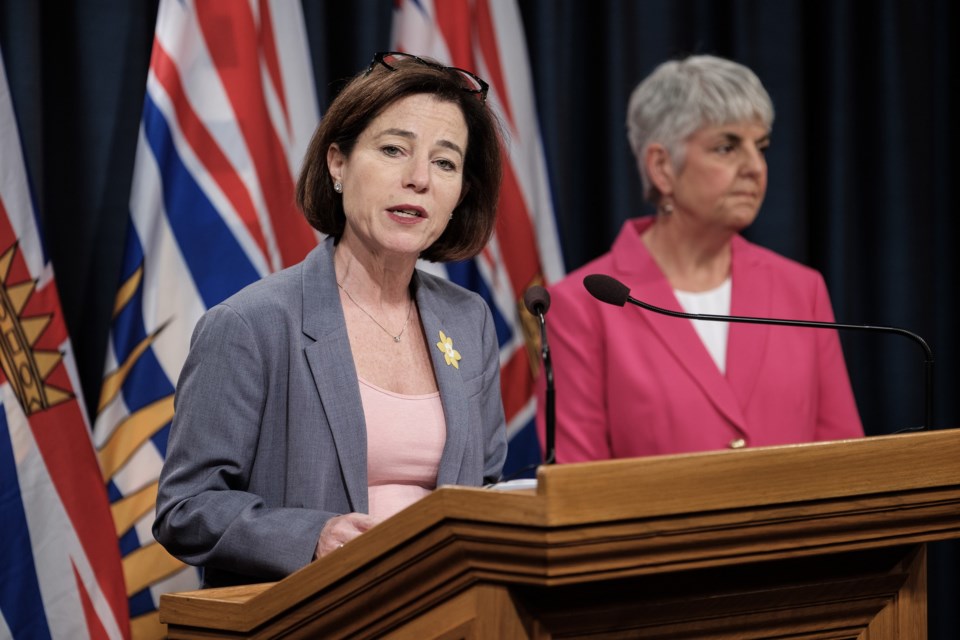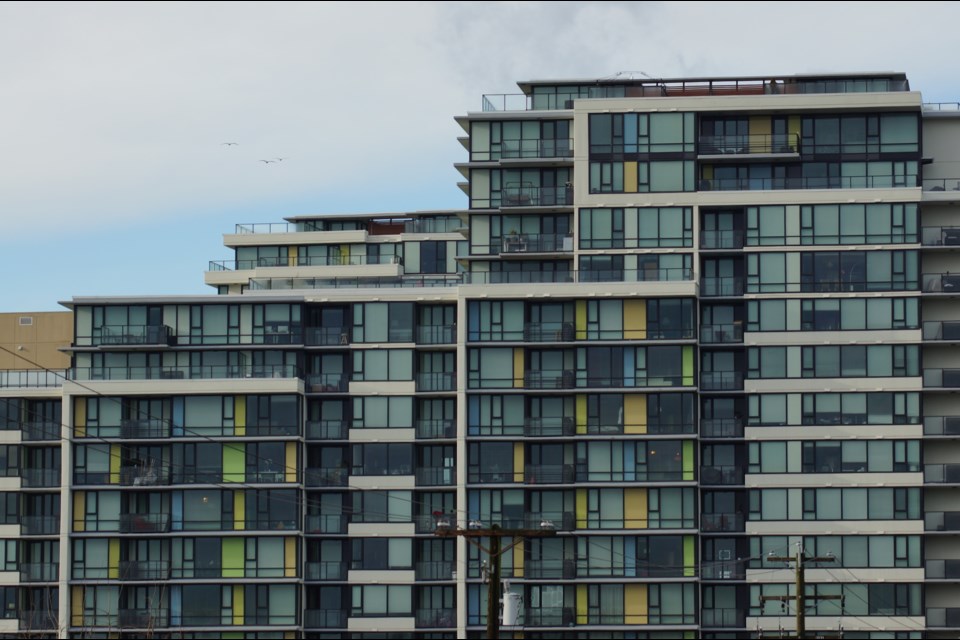Mayor Malcolm Brodie says a forthcoming City of Richmond review of market rental housing will coincide with new legislation announced by Housing Minister Selina Robinson that grants municipalities the ability to re-zone for rental-only purposes.
But until both policies are ironed out, Brodie said it’s unclear whether Richmond will be able to add more rental stock that is sorely needed.
“What the possibilities are, it’s impossible to say at the moment,” said Brodie.
Rental zones have been called upon for years by local governments, which are bound by the provincially-governed Local Government Act.
According to estimates, the city anticipates needing 320 purpose-built rental units per year until 2026.
On Wednesday Robinson said with the changes a city can re-zone undeveloped land for rental-only purposes. Applying the new zoning can also protect existing rental properties from being developed into stratas. A municipality may also designate a certain percentage of units as rental in new multi-family residential buildings.
“There is a shortage of rental homes in British Columbia. The steps we are taking today will both help local governments track the needs of their communities, and give them a powerful tool to deliver homes people can afford in the communities where they work, go to school and raise their families,” said Robinson, by news release.

The move was welcomed by LandlordBC, a consortium of owners, managers and developers of rental housing. The Urban Development Institute said developers would likely need tax incentives to finance more rental developments.
And, “UDI is not opposed to rental only zoning as long as it’s done right and doesn’t devalue development land,” it noted on Twitter.
Brodie said the city’s Official Community Plan (OCP) must be considered.
“We must go through a public process. We can’t just mandate that will happen without any process. And of course land owners would have something to say,” said Brodie.
According to the city a report is forthcoming on how to generate more supply of purpose-built rentals (newer examples of such are the rental complex at Riverport and Onni development in Steveston).
Unlike in Burnaby, Richmond’s stock of 3,477 rental housing units (mostly built between 1960 and 1990) has been spared the wrecking ball as development is focused on the low-density commercial areas of north No. 3 Road and nearby the Richmond Olympic Oval. However the city notes the OCP already encourages a one-to-one replacement if rental housing is converted to strata, or where existing sites are rezoned for redevelopment.
According to the city’s Affordable Housing Strategy, the forthcoming Market Rental Policy will “consider policy options to increase the supply of market rental units in Richmond.”
The city already has a policy to create more secondary suites in detached homes. When one home is rezoned into two, at least one of the new homes must have a suite, with few exceptions.
Already historically high Metro Vancouver housing prices have skyrocketed in the past five years, fuelled by foreign demand, largely from China. Census data shows one in four new condos being sold offshore and the rate of foreign ownership has ticked upward to about 7.5 per cent. According to Metro Vancouver reports, 68 per cent of Richmond households pay more 30 per cent or more on housing — considered the litmus test of unaffordability.
The strategy notes: “The implications of not meeting housing demand for different household types and income levels in Richmond have greater community impacts, such as the recent trend of decreasing enrolment in public schools and the growing number of individuals experiencing homelessness in the city.”
While the city’s strategy focuses on the supply side, the BC NDP has taken steps to curb speculative demand, such as imposing a speculation tax on empty, non-rented secondary residences; tracking pre-sale condo sales and reporting them to the Canada Revenue Agency; increasing the foreign home buyers’ tax; and creating a database for beneficial (hidden) ownership of property — a tactic employed by tax evaders and money launderers.



